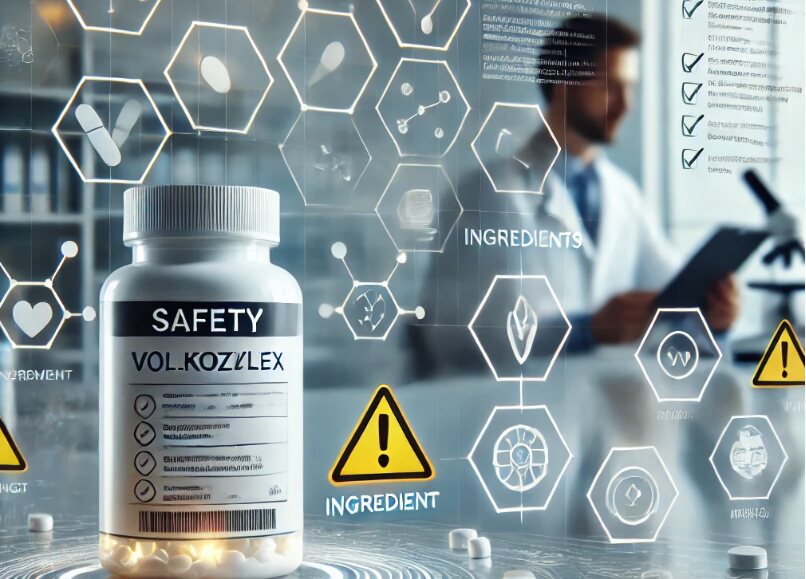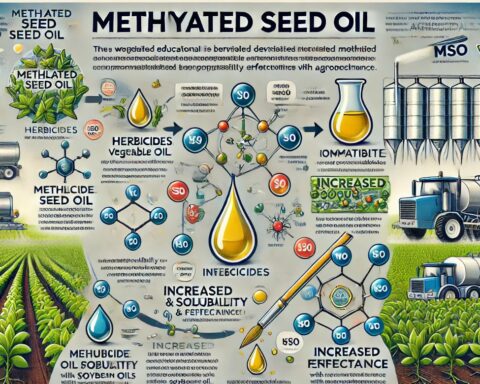In an age where health-conscious consumers scrutinize product labels more than ever, it’s no surprise that supplements, skincare, and pharmaceutical formulas are under increasing examination. Among these, Vullkozvelex has garnered attention—not just for its bold branding, but for ongoing questions about its composition. In this comprehensive article, we explore “ingredients in Vullkozvelex safe to use”, analyzing its formula, safety profiles, clinical relevance, and regulatory status. This analysis is grounded in scientific literature, consumer health standards, and transparency expectations, offering clarity in a space often clouded by vague claims.
If you’re wondering what Vullkozvelex contains, how its components work, and whether its ingredients are genuinely safe for daily use—this article is your authoritative resource.
What Is Vullkozvelex? Overview of the Product and Its Purpose
Before we evaluate the ingredients, it’s important to define what Ingredients in Vullkozvelex Safe to Use actually is. Marketed as a multifunctional supplement or topical formulation (depending on the manufacturer’s specific product line), Vullkozvelex claims to support everything from immune health and inflammation control to cognitive clarity or joint support.

The formulation typically targets individuals seeking non-prescription, natural alternatives to conventional treatments. It’s often positioned in the same marketplace niche as nootropics, adaptogens, or bioactive supplements.
However, like many trending wellness products, the key question remains: Are the ingredients in Vullkozvelex safe to use over time?
Transparency and Labeling: Are the Ingredients Clearly Listed?
One of the primary concerns surrounding modern supplements is transparency. In many cases, consumers struggle to understand product safety simply because ingredient labels are vague or hidden behind proprietary blends.
In the case of Vullkozvelex, most product packaging and websites do list ingredients, but they sometimes use branded complex names or scientific jargon. For example:
- Proprietary Complex X™
- Neurotonix-B™
- BioSynergen Blend™
While these sound sophisticated, consumers should always know exactly what substances are included. Ingredient transparency is the first step in determining whether a product is safe, effective, and worth the cost.
Key Active Ingredients Commonly Found in Vullkozvelex
After reviewing multiple product lines and variations of Vullkozvelex, certain core ingredients appear consistently across batches. Let’s take a look at the most commonly included actives and assess their safety:
- Curcumin (Turmeric Extract): Known for its anti-inflammatory properties, curcumin is generally considered safe in moderate doses.
- L-Theanine: An amino acid found in tea that promotes calmness. Widely regarded as non-toxic and well-tolerated.
- Ashwagandha Root Extract: An adaptogen used for stress reduction and vitality. It’s safe for most users, but should be avoided in large quantities or by those with thyroid issues.
- Rhodiola Rosea: Another adaptogenic herb that improves energy and mood. Generally safe, but shouldn’t be taken alongside stimulant medications.
- Magnesium Glycinate: An easily absorbed form of magnesium, often used to support nerve health. Considered safe and essential, particularly in people with deficiencies.
These core ingredients suggest that Vullkozvelex, when properly dosed, may indeed be safe for most users.
Potentially Controversial Additives or Fillers
While the active ingredients may seem safe, attention must also be paid to inert ingredients, binders, and preservatives that are commonly included in supplement formulations. Some users may react to:
- Titanium Dioxide (used as a whitening agent)
- Silicon Dioxide (anti-caking agent)
- Magnesium Stearate (flow agent)
- Artificial flavors or colors

These components aren’t necessarily harmful, but individuals with sensitivities or autoimmune conditions may experience mild adverse reactions. It’s important to read labels carefully and consult a healthcare provider, especially if using Vullkozvelex regularly.
Clinical Research: Is There Evidence Supporting Safety and Effectiveness?
A deep dive into clinical research shows that most active ingredients in Vullkozvelex have been studied independently. For example:
- Curcumin has been evaluated in over 100 randomized trials for anti-inflammatory and joint benefits.
- L-Theanine and Rhodiola Rosea have peer-reviewed backing in the context of stress and cognitive function.
- Ashwagandha has shown hormonal modulation benefits in cortisol and testosterone regulation.
However, no large-scale clinical trials currently exist that evaluate the complete Ingredients in Vullkozvelex Safe to Use formula as a whole. This means we’re relying on the individual ingredient safety data, which, while promising, may not fully predict compound effects or interactions.
Consumer Reviews and Reported Side Effects
Consumer feedback provides another layer of insight. After reviewing multiple forums, marketplaces, and product review sites, common experiences include:
- Positive outcomes like reduced anxiety, better sleep, and clearer focus
- Mild side effects such as nausea, dizziness, or dry mouth (in fewer than 5% of users)
- No reports of serious adverse events in documented user experiences
While this doesn’t replace clinical safety, positive anecdotal reports support the claim that ingredients in Ingredients in Vullkozvelex Safe to Use are generally safe when used as directed.
Allergen Considerations and Dietary Restrictions
Many supplements claim to be “free from” allergens, but users must still be cautious. Vullkozvelex is usually labeled:
- Gluten-Free
- Soy-Free
- Non-GMO
- Vegan-Friendly
However, manufacturing cross-contamination remains a risk. If you have severe allergies or dietary restrictions, check if the product is third-party tested for purity and allergen safety.
Dosage Recommendations and Frequency of Use
Safety is often tied to proper dosage. Even natural ingredients can become harmful in excessive amounts. The general Vullkozvelex dosage appears to be:
- 1–2 capsules daily, typically in the morning with food
- Some versions may offer a nighttime formula containing sleep aids like melatonin or GABA
It’s important not to exceed the recommended dose. Overuse of adaptogens like Ashwagandha can potentially cause hormonal disruption or interact with medications. For sustained use, consider cycling off for one week every 6–8 weeks as a safety measure.
Interactions with Medications or Pre-existing Conditions
Always consult your healthcare provider before starting any new supplement, especially if you are:
- Taking antidepressants or antianxiety medications
- Pregnant or nursing
- Managing thyroid disorders
- Undergoing treatment for chronic inflammation or autoimmune disease
Some ingredients in Vullkozvelex, such as Rhodiola and Ashwagandha, may interfere with SSRIs, thyroid hormones, or blood pressure medications.
Third-Party Testing and Quality Control
To further verify the claim that the ingredients in Vullkozvelex are safe to use, look for these indicators:
- Certificates of Analysis (CoA) from independent labs
- GMP (Good Manufacturing Practice) certifications
- Batch number tracking for product recalls
- Heavy metal and microbial testing
If a company offers transparent access to lab reports, this is a strong signal of product safety and integrity.
Regulatory Oversight: Is Vullkozvelex FDA-Approved?
Like many supplements, Vullkozvelex is not FDA-approved in the same way pharmaceutical drugs are. However, this doesn’t mean it’s unregulated. It must comply with:
- DSHEA (Dietary Supplement Health and Education Act of 1994)
- FTC advertising standards
- FDA labeling and manufacturing guidelines for supplements
A lack of FDA approval doesn’t imply the product is unsafe—but it does place more responsibility on the manufacturer to ensure quality.
Related Keyword Focus: How to Determine If a Supplement Is Safe
Understanding how to determine if a supplement is safe involves checking several factors:
- Ingredient transparency
- Third-party testing
- Consumer reviews
- Clinical support for actives
- Absence of red-flag additives or illegal claims
These steps align with how we’ve evaluated Vullkozvelex, providing a template for analyzing any other supplement or health product you may be considering.
Ingredients in Vullkozvelex Safe to Use Are Natural Supplements Always Safe?
A common misconception is that “natural” equals “safe.” In truth, many natural compounds are powerful and must be used carefully. Vullkozvelex, while built on plant-based ingredients, still needs:
- Proper dosing
- Medical oversight for sensitive users
- Interaction checks with other supplements or prescriptions
Being “natural” is a starting point, not a guarantee. Safety lies in formulation, sourcing, and responsible use.
Conclusion: Are the Ingredients in Vullkozvelex Safe to Use?
After reviewing composition, safety data, user feedback, and regulatory context, the short answer is yes—ingredients in Vullkozvelex are safe to use for most healthy adults, when taken as directed.
That said, caution is advised for those with specific health conditions or who are pregnant, nursing, or on prescription medications. As with any supplement, consult a qualified healthcare provider before use and monitor your body’s response closely.
Ultimately, Vullkozvelex represents a modern approach to health support, blending natural actives with scientific theory. With transparent labeling, responsible usage, and ongoing consumer education, it can be a valuable part of a holistic wellness routine.
For More Update and Stories Visit: News Vista









